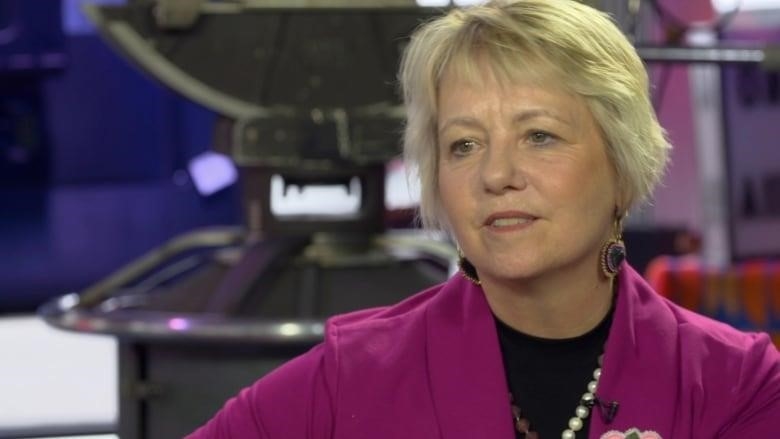
The provincial health officer for B.C. says that people are starting to change their minds, but “slowly, too slowly.
Nearly seven people still die every day because of the poisoned drugs in British Columbia, and Dr. Bonnie Henry, the provincial health officer, says that politicians are still trying to figure out how to treat drug users like people.
Henry told CBC News in a wide-ranging interview that the toxic drug crisis was “the most difficult public health issue I’ve ever dealt with.”
She said that getting elected officials to change their minds about drug users after a century of drug prohibition and criminalization is one of the most difficult parts of making public policy.
“Politicians have had a hard time getting their heads around it,” Henry said. “These are individuals.”
Since B.C. declared a public health emergency because of deaths from illegal drugs almost seven years ago, attitudes are starting to change, but “slowly, too slowly,” according to the provincial health officer.
“We’re recognizing that drug users are first and foremost people,” she said. “They are our friends, members of our family, coworkers, and neighbors.”
Her words are similar to those of Chief Coroner Lisa Lapointe, who has said that it’s been hard to get public policy away from an idea that says the only way to help drug addicts is to “lock them up.”harm them as much as we can.”
Vince Tao, a community organizer for the Vancouver Area Network of Drug Users (VANDU), said that academics, researchers, the police, and the media all have trouble seeing drug users as real people.
He said of Henry’s comments, “She’s not wrong, but, with all due respect, that’s her job, right?” “It is her job to make sure that the people she works with understand how serious the situation is.”
Tao thinks that for real change to happen, it takes more than just seeing drug users as people. He also said that it means giving them and other people who aren’t in power much of a say in how decisions are made.
During the pandemic, “things got a lot worse.
Henry talked to CBC News to mark the third anniversary of the COVID-19 pandemic, which is another public health emergency that has caused more and more people to die from toxic drugs.
The latest numbers about the drug crisis were released by Lapointe’s office on Tuesday. They showed that 211 people were killed by illegal drugs in January. In that month, 47 out of every 100,000 people died, which was more than twice as many as in April 2016, when the public health emergency was declared.
Henry said it was upsetting to see more people use drugs alone because of the pandemic and the rules put in place to protect public health. Other measures also caused the illicit drug supply to become increasingly dangerous.
“Because international trade was stopped and people made big batches of things at home, there was no quality control, so things got much worse,” Henry said.
This includes a big rise in the number of deaths among men ages 30 to 59, many of whom had jobs but used drugs at home without their families knowing.
Watch: The health officer for the province talks about the toxic drug crisis.
But Henry said that the pandemic had also opened up some chances. When figuring out how to deal with COVID-19, public health officials had to work closely with elected officials. This made people more trusting and open to new ideas.
She used a three-year pilot project in British Columbia that made it legal for people to have very small amounts of some drugs.
When Henry released a report in 2019Calling for similar steps, she said, “It was turned down by the government.”
She said, “Having built that trust through the pandemic, it made it possible for us to talk and go back and say, ‘Look, read this again; let’s think about it.'”
Henry thinks that the fact that the province went on to ask for an exemption from federal drug laws and that decriminalization in some form was approved is “a massive step forward.”
“A pilot program is what they call it. I don’t think we can go back from here, “she told me. “What we need to do is make sure it happens, so that the criminal justice system doesn’t interfere with people’s lives.”
She said that she has talked to mothers who are afraid to get help for addiction because they don’t want to be called criminals and lose their kids. Henry hopes that some of these worries will go away after decriminalization.
She also said that B.C. still has a long way to go with its policies to stop the number of drug-related deaths.
That includes making it easier for people to get safer prescription drugs, which are still only available to a small number of drug users and not in many places.
It also includes changing the treatment and recovery system, which is not regulated by the provinces, so that facilities use methods that have been proven to work and hire qualified staff.
“We don’t have a plan,” Henry said. “There’s never been a way to know who’s in there, how well they do, or how often people slip back into old habits.”
In the end, though, Henry thinks that the drug crisis isn’t just about drugs. It’s about overlapping, systemic problems like B.C.’s broken mental health care system, homelessness, and incomes that don’t cover the cost of living in this province.
She said, “It’s not just one thing.”
